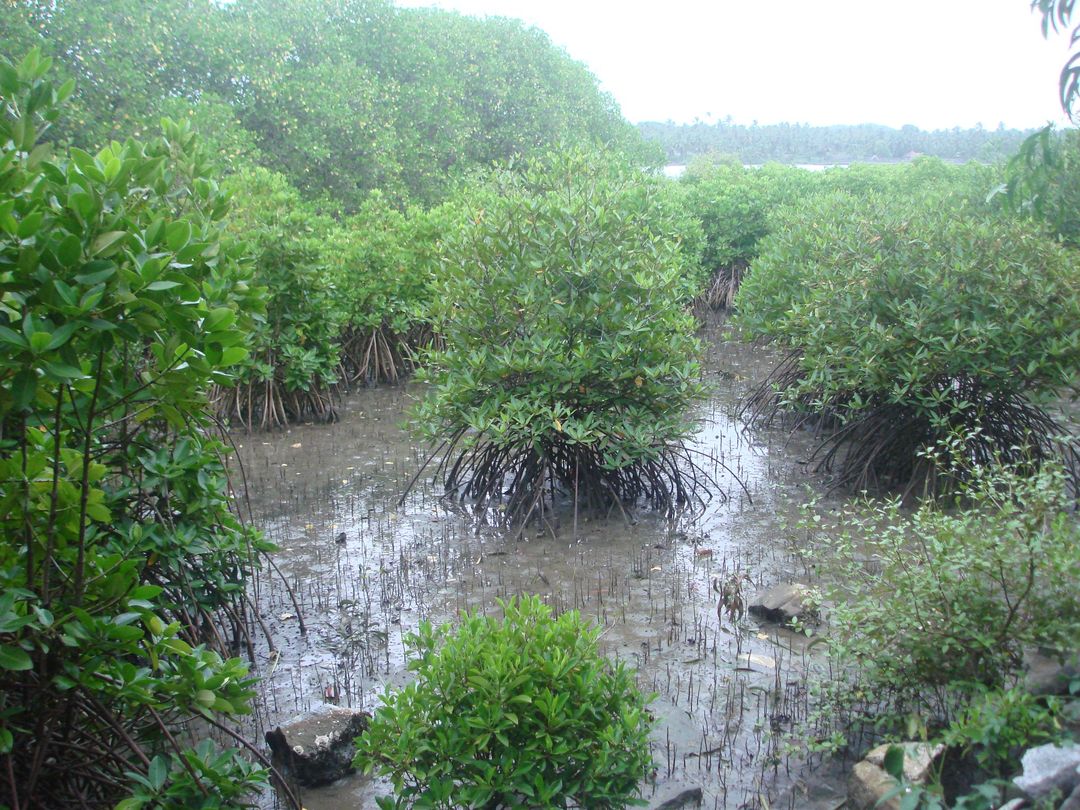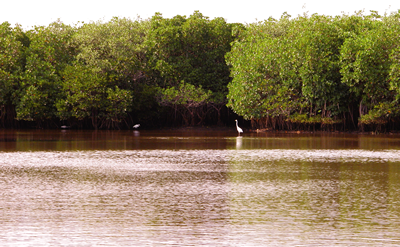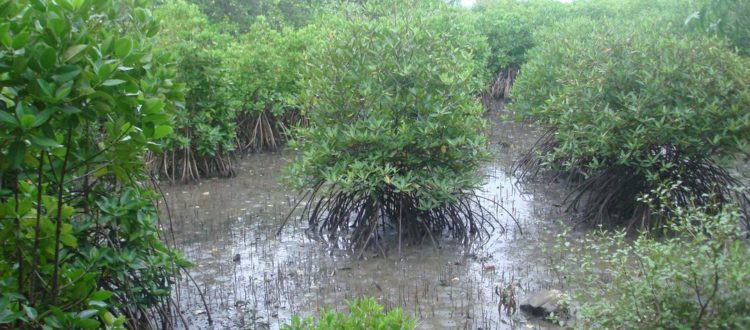Experts deliberate on the future of Mangrove Conservation in Kerala
26 July 2021, Kannur: International Mangrove Day was commemorated on July 26, by Wildlife Trust of India’s Kannur Kandal Project and Kerala Forest Department through a webinar to discuss the future of mangrove conservation in Kerala. The online event saw experts and stakeholders from across the world come together to share their insights on mangrove conservation.
Mangroves are unique ecosystems with the ability to sequester and store three to four times more carbon than terrestrial forests. Thus, the healthy survival of mangrove forests is key to fighting climate change. Unfortunately, they face severe threats from multiple avenues, and like forestlands, we need urgent measures to save what is left of our mangrove forests.
The inaugural session began with a welcome address by Mr Sajan John, Co-Principal Investigator of Marine Projects, WTI. Professor B.C. Choudhary, Executive Trustee and Senior Advisor, Aquatic Projects, WTI, set the tone for the session.
In his presidential address, Mr. P.K. Kesavan IFS, Principal Chief Conservator of Forests and Head of Forest Force, Govt. of Kerala, highlighted how the degradation rate of mangrove forests is five times that of terrestrial forests. There used to be more than 400 sq km of Mangrove forests in Kerala, of which only 21 sqkm remain. “People realized the importance of mangroves in flood prevention after the 2004 tsunami,” he said.

Professor Joe Shing Yip Lee, Chair of IUCN SSC Mangrove Specialist Group, in a brilliant keynote address provided much needed insights into the threats – obvious and unknown that mangrove ecosystems face today. “They offer protection to many endangered species and also function as breeding sites, and therefore are very important to our ecosystem. These forests also provide protection and livelihoods to coastal communities,” he added. Professor Lee stressed on the need to address the developmental threats mangroves face, especially as most mangroves lie in the developing world.
The event was inaugurated by Shri A.K. Saseendran, Honorable Minister for Forest and Wildlife, Govt. of Kerala, who stressed the state’s commitment and outlined the strategy for mangrove conservation. He said that theKerala Government has notified 831 acres of mangrove lands in the state as Reserve Forests and under the Rebuild Kerala Development Program, there are plans to secure more mangrove lands. He also asked the experts of the panel discussion to help developing new ideas and contributing practical management guidelines for conservation of mangrove ecosystem in the state.
“It is an enormous challenge making people realise the importance of mangroves. I am convinced mangroves are the step-sister forests of the world, and step-sister ecosystems in fact,” emphasised Vivek Menon, Founder and ED, WTI, in his address.
The inaugural session was followed by a panel discussion, moderated by Professor B.C. Choudhary, on the future of mangrove conservation in Kerala. In the opening remarks, Professor Lee stressed on the need to manage and conserve Kerala’s mangrove forests as we have lost over 90% of them.
DrVanaja T, Professor and Associate Director of Research, Kerala Agriculture University emphasised the need to take a holistic approach when dealing with such fringe cultivation practices, as organic rice farming supports more biodiversity than traditional paddy farming and offers flood protection. She works towards promoting the cultivation of saline resistant paddy species in the Kaipad rice tract in Northern Kerala, an area fringed by mangroves.”Protect the Kaipad ecosystem and protect the mangroves on the fringe. It provides food security, flood security and livelihood security to the marginalised farmers in the region”, she added.
Professor Biju Kumar, Professor and Head, Department of Aquatic Biology and Fisheries, University of Kerala, talked about the need to have a concrete database of the mangrove ecosystems in the state and have a broader picture of the biodiversity of the mangroves to realise the economic value of the ecosystem.

Dr. Dineshan Cheruvat, Additional Director of Fisheries, Government of Kerala, also elaborated on the need to have baseline data for mangroves. Like DrVanaja T, he also stressed the need to maintain delicate ecosystems like Kaipad to maintain food security, nutrition security, health security and livelihood security.
The last speaker Mr Pramod G Krishnan IFS, Additional Principal Chief Conservator of Forest, Government of Kerala, highlighted the state government’s plans and initiatives to conserve mangrove forests in the state and acquire mangrove forests under private ownership.
The webinar gave the audience a deep insight into the process of Mangrove Conservation in Kerala. It sensitised the audience and raised many poignant questions. ” Any conservation strategy must have a holistic approach and incorporate the scientific, social, and political constraints”, Professor Lee perfectly summarised.
Mr. D. K. Vinod Kumar IFS, the Chief Conservator of Forests, Northern Circle of Kerala Forest Department has delivered the vote of thanks.
In addition, this webinar involving experts across various domains that set the tone for holistic conservation corroborated WTI’s approach to conserving the Kannur Kandal ecosystem. Read more about it here.
All photo credits – WTI









